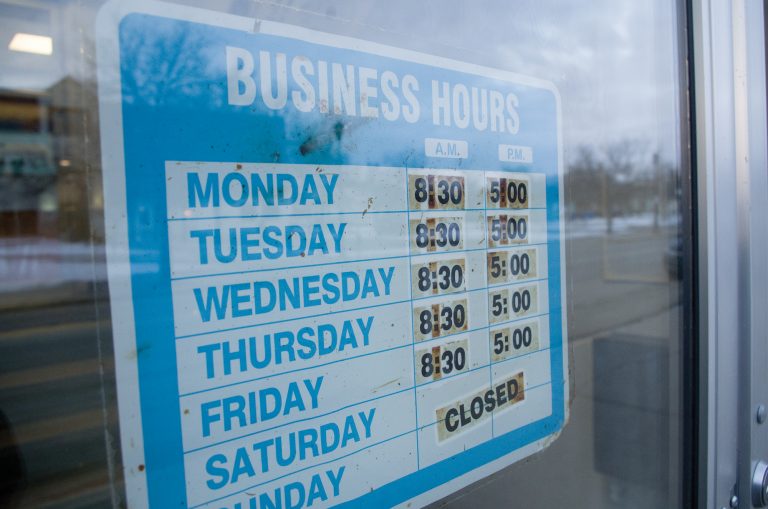
Survey results from the Canadian Federation of Independent Business (CFIB) show half of small businesses report a drop in sales due to fears over a second wave of COVID-19.
The hospitality sector had the highest number of businesses reporting a decrease at 76 per cent. The arts and recreation sector was second, with 69 per cent of businesses reporting a decline in earnings due to concerns about a second wave.
The results also show roughly 37 per cent of Canadian small businesses are losing money every day they are open. Saskatchewan is slightly below the national average, with 36 per cent of small businesses losing money every day.
Roughly 78 per cent of Saskatchewan businesses are fully open, according to the survey, with 55 per cent fully staffed, and 40 per cent reporting normal sales.
Marilyn Braun-Pollon, CFIB vice-president for Western Canada, said they knew business owners had a lot of anxiety and uncertainty about the future. She called the survey results a “pretty sobering picture” and said the provincial and federal governments need to be prepared to offer more financial aid if Saskatchewan goes back under another lockdown.
“We know that recovery has been slow for a lot of businesses,” she explained. “When you look at a second wave and the impact on the economy, business owners are going to need all the support they can get to get through these critical times.”
Braun-Pollon said they’re encouraged by promises made by Premier Scott Moe during the recent provincial election campaign. The party promised to reduce the small business tax rate to zero for the next two years, while also reducing power bills by 10 per cent for one year.
However, Braun-Pollon said that might not be enough to keep small businesses afloat during a second wave. Even if businesses aren’t forced to close, many business owners say their customers don’t have the confidence to visit stores personally.
She outlined seven measures all governments can take to help struggling small businesses. The list includes a request for the immediate expansion of the Canada Emergency Business Account (CEBA) loan program by $20,000, with an extra $10,000 forgivable portion, as well as retroactive rent support to businesses whose landlords did not take part in the Canada Emergency Commercial Rent Assistance (CECRA) program.
Prince Albert and District Chamber of Commerce CEO Elise Hildebrandt said COVID-19 has caused some uncertainty among the business community, but she believes everyone is well-prepared for a second wave. Still, she said other levels of government will have to step in and help keep those businesses afloat should there be a second lockdown, and she’s not sure there’s enough money to go around.
“Provincially and federally, I don’t know how much money we’ve got left in those coffers,” she said.
Regardless of what the future holds, Hildebrandt said it’s critical small business owners learn how to do business on the internet. The COVID lockdown has changed consumer behavior, she explained, with many people becoming used to shopping online. Local small businesses will have to change to survive.
“We have to find a way as a business community to pivot and to adapt, whether we have a second wave coming or not,” she explained. “Consumers have already adapted to going online to shop. We have got to find a way to put that into our learning.”
